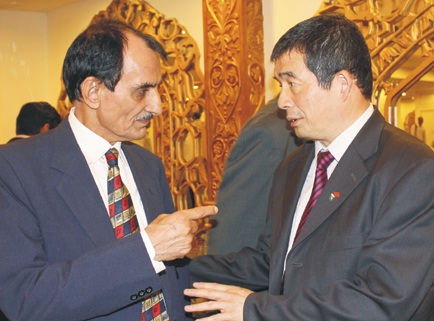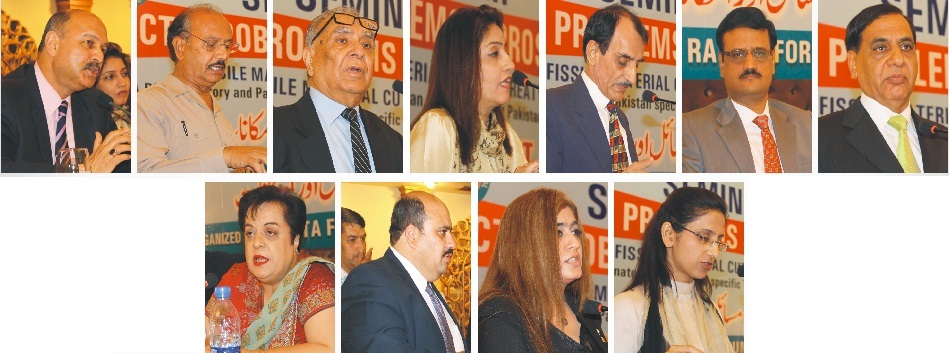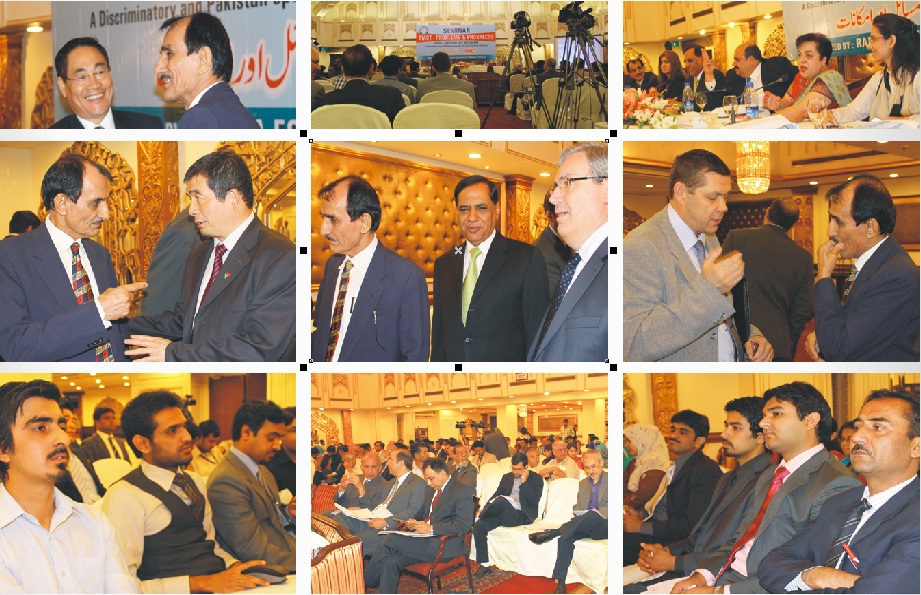On Thursday, 3rd May, 2012, at “Marriott Hotel”, Islamabad.
SPEAKERS
1. Mr. Senator Mushahid Hussain Syed 2. Mr. Dr. Zafar Iqbal Cheema
3. Mr. Dr. Tanveer Ahmed Khan 4. Dr. Huma Baqai 5. Mr. Nusrat Mirza
6. Zafar Imam Advocate 7. Gen. Ehsan-ul-Haq 8. Dr. Shireen Mazari
9. Dr. Z. Nawaz Jaspal 10. Dr. Maria Sultan 11. Dr. Rizwana Abbasi
Mushahid Hussain Syed:
in his opening remarks said that the issue of FMCT is very important basically the seminar is taking place in the environment of changes:
1. Rethinking between Pakistan and India relations
2. Military withdrawal of NATO and America from Afghanistan
3. Strategic agreement between Afghanistan and USA beyond 2014, President Obama signed an Agreement just two days ago
4. Changes are taking place in broader region that of Arab spring; new actors are emerging like Turkey and Egypt. And then of course North Korean Ambassador is here, you are very welcome Ambassador. Recently you have the celebration of your king. This is also season missile testing but yours one was not missile testing but some thing has been fired in the air. Of course, Pakistan and India have traditional approach of tit for tat. They do something we do in reply of that If we do something India also do some thing. India and Pakistan follow this pattern predictably and successfully but without creating large hick ups. This shows that we have learned to live together even in the fieZld in the NUCLEAR MISSILE and learned to live with respective stress. This also shows that relationship between the two countries more normal, more balanced and more realistic. We have reached some kind of maturity in the region even in the field of weapons of mass destruction.
General (R) Ehsanul Haq:
former joint chiefs of staff committee speaking in a seminar on ‘FMCT-Problems & Prospects held at a hotel in Islamabad, organized by Rabita Forum international said that Pakistan’s nuclear program is peaceful one but Pakistan will never compromise on its security needs and interest. In fact Pakistan has reluctantly started the nuclear the program. Pakistan in the region has neither first initiated nor first proliferated and or first detonated the atomic bomb. It was after the Indian detonation, Pakistan started the nuclear program just to make the regional balance of power right. We were compelled to start the nuclear program. It was complete failure of international non proliferation organizations that India detonated bomb in 1974. The American Indian civil nuclear treaty is discriminatory, selective and demonstrates double standard of the west. It has serious implications in the region and the world. Pakistan cannot accept the FMCT because the other countries have stockpiles of atom bomb and Pakistan is out of proportion with respect to India and other countries.
Dr. Shireen M Mazari :
It is a fallacy that arms control will eventually lead to disarmament. While the former refers to negotiated measures leading to curbs on acquiring new weapons, the latter term refers to a quantitative reduction in the total number of existing weapons – that is, the elimination of either specific armaments or as in the notion of General and Complete Disarmament (G&CD). In some ways, in the post-45 period the very notion of global disarmament was undermined with the format of the UN Charter in which a system of collective security was envisaged through the UN’s Military Staff Committee and with the provision for collective defense by groups of states within regional military alliances. All this assumed the prevalence of, at least, a minimum level of arms.





very good activity